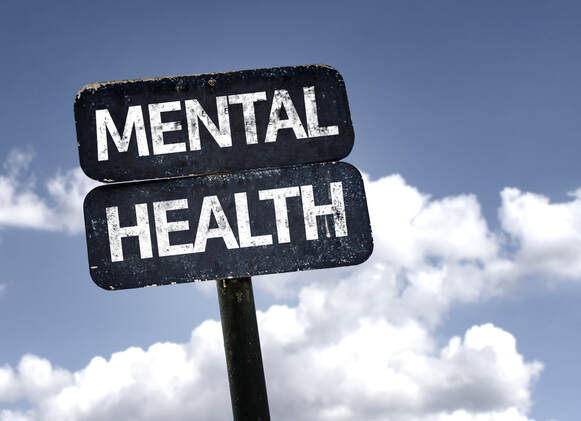This year, 10 million adults will experience a mental health issue – that’s 1 in 4 of us. Mental illness can happen to anyone at anytime. But there are some things we can do to look after our mental health.
1. Eat well
Balancing our food can also help to balance our mood. In fact, research has shown that nutrition plays a role in the development and management of some mental illnesses, such as depression[i]. For tips on which foods can have a positive affect on your mood, take a look at the Mind website.
2. Drink sensibly
Although alcohol can temporarily seem to alleviate negative feelings, it has been found to be a contributing factor in depression, anxiety and psychosis. This is because it decreases the level of serotonin in our brains, which is a chemical that acts as a mood stabiliser. So as well as disrupting regular sleep patterns, which can have a significant effect on mood, it can also heighten feelings of anxiety, depression and despair.
Of course, it’s not just our alcohol intake that it’s important to be mindful of. Caffeine and sugary drinks can also affect our mental health. Sugary drinks produce spikes and crashes in blood sugar levels, leaving you feeling tired and depressed. And as a stimulant, caffeine can also make you feel anxious and depressed, as well as affecting your sleep. To combat this, try drinking more water and swapping coffee for herbal teas.
3. Get a good night’s sleep
Much like our diet, sleep patterns play a role in mental health problems such as depression, anxiety, bipolar disorder, psychosis and obsessive compulsive disorder (OCD). Tiredness can increase feelings of loneliness and being overwhelmed. It can also affect your mood, lower your self-esteem and reduce your ability to rationalise, leading to increased negative thoughts.
Likewise, mental health problems can affect our sleep. Anxiety can stop you sleeping, with racing thoughts making it difficult to sleep or leading you to experience nightmares or disrupted sleep. While depression may lead you to oversleep, resulting in fatigue or lethargy. Some medications, such as antidepressants, may also affect sleeping patterns.
To improve your sleep, try establishing a regular sleeping pattern by going to bed and getting up at the same time each day. Make sure the temperature, light and noise levels are right, and relax before going to bed. This means stopping any stimulating activities, such as exercise, work or looking at your phone, computer or tablet, an hour before going to bed. You can read more tips on coping with sleep problems on the Mind website.
4. Take a break
Taking time out is essential for our wellbeing. Without time for relaxation the stresses and pressures of everyday life can become overwhelming, triggering anxiety and depression. So make sure you make time for self-care every day, whether it’s reading a book, having a bath, listening to music or going for a walk. Practising mindfulness can also help you feel calmer and has been shown to help the management of mild depression, anxiety and other common mental health problems.[ii]
5. Keep active
Physical activity can positively benefit our mental health, reducing stress and anxiety, and increasing self-esteem. Research has found that low-intensity aerobic exercise (exercising for 30–35 minutes, 3–5 days a week, for 10–12 weeks) is best at boosting your mood.[iii] This can be anything: walking, swimming, cycling, gardening, hoovering, mopping – you don’t have to be training to run a marathon. Any exercise is good for keeping you healthy and making you concentrate on something other than unwanted negative thoughts and worries.
6. Keep in touch
Connecting with others can help to combat loneliness and isolation, which can both lead to mental illness and be a result of it. You can build positive relationships by talking to friends and family, joining local groups for the things you like to do, volunteering for a charity or by joining an online community such as Elefriends, where you can share your experiences with others in a similar position. Just remember, what’s important isn’t the number of connections you have but being able to open up and talk honestly to those you’re in touch with.
7. Talk about your feelings
Ignoring feelings only makes them more powerful. So start by acknowledging how you feel - writing it down can be helpful if you’re not sure where to start or how to describe what you’re feeling. Then share this with others. Telling your family and trusted friends can help you feel supported and listened to. Local support groups can also provide a safe and confidential space to share how you feel.
8. Ask for help
Getting help and support is not a sign of weakness. If you’re experiencing difficulties with your mental health the first person to contact is your GP who can make a diagnosis and talk you through options for treatment. This may be medication, talking or behavioural therapies, or a referral to a specialist mental health service. If you’re having difficulties at work you could also speak to your manager about taking time off or making changes to your workload or hours. The important thing to remember is that you’re not alone and there is help available.
If you would like to talk about your mental health difficulties in a safe, confidential and non-judgemental space, do get in touch.
[i] Mental Health Foundation, Diet and Mental Health, Available: https://www.mentalhealth.org.uk/a-to-z/d/diet-and-mental-health
[ii] Mind, Mindfulness, Available: http://www.mind.org.uk/information-support/drugs-and-treatments/mindfulness/#.WAOVgFs4RFU
[iii] Mental Health Foundation, How to Look After Your Mental Health Using Exercise, Available: https://www.mentalhealth.org.uk/publications/how-to-using-exercise


 RSS Feed
RSS Feed